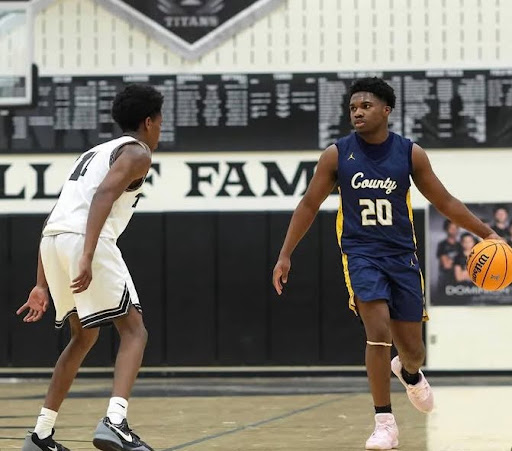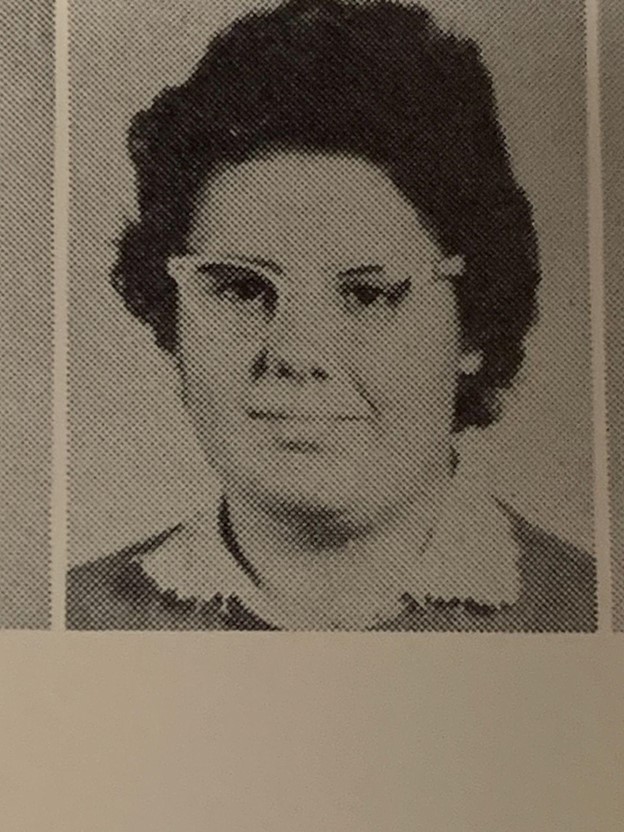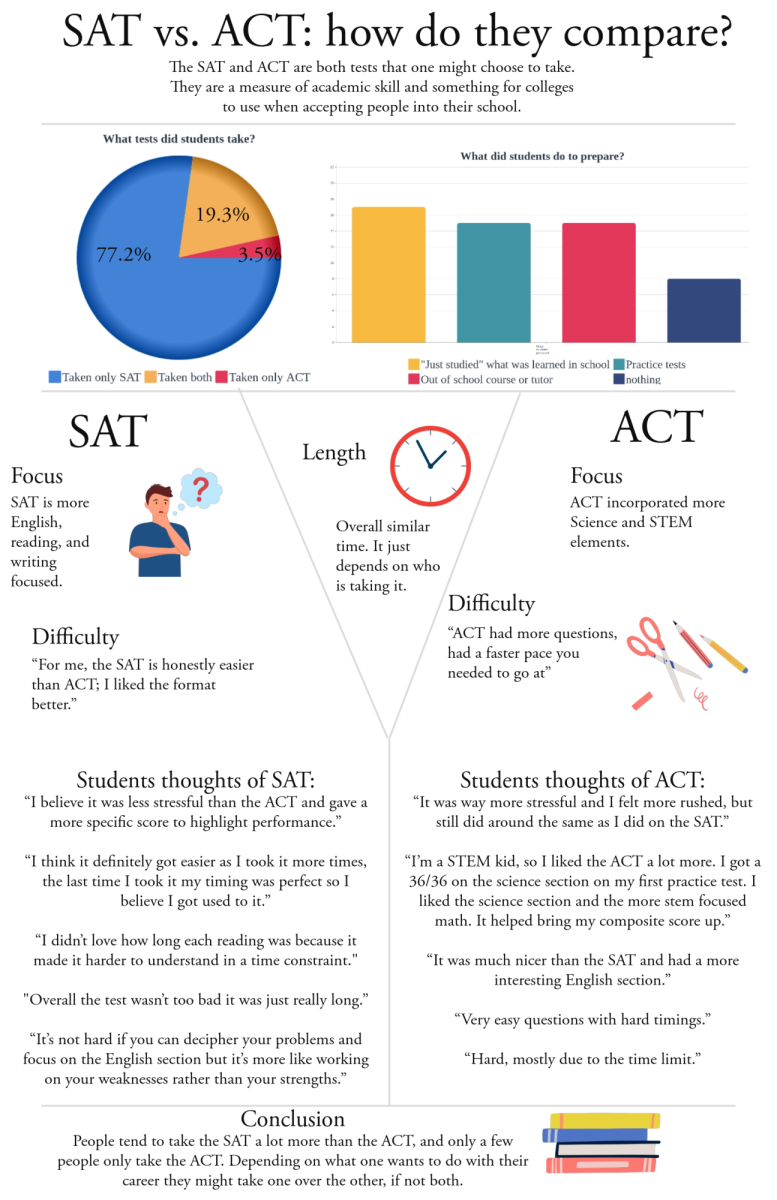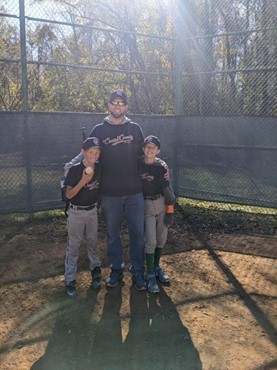Students struggle after Covid-19 Pandemic
January 17, 2022

As students get off the bus this year, they are faced with high violence rates, declining grades and mental health issues at school following the 2020 school year.
For many students, mental health has been a heavy weight on many teens’ backs. According to the federal CDC emergency department, visits for suspected suicide attempts among adolescents jumped 31% in 2020, compared with 2019.
“I became super, like depressed, just being isolated with my own thoughts and unable to see friends and family,” freshman Ella Cortissoz said.
The pandemic had added to the pre-existing challenges facing many students whether it be mental health, grades or their social life.
“Covid sort of separated me from my family. I didn’t really talk to them anymore even though I spent so much time at home,” sophomore Cole Terhune said.
Having online school made school feel easier but then coming back to school in person was difficult to readjust.
Since the decline of mental health, a rise in misbehavior and violence has occurred in many schools throughout the country.
“From a safety and security perspective, we did notice an increase in unacceptable behavior by some students. The pandemic stopped students from maturing the way they naturally would in a school environment.” said school security officer Daemian Korker.
In an article written by the Pew Charitable Trusts Foundation,
As students get off the bus this year, they are faced with high violence rates, declining grades, and mental health issues at school following the 2020 school year.
For many students, mental health has been a heavy weight. According to the federal CDC emergency department, emergency visits for suspected suicide attempts among adolescents 12-17, usually around 6,000 per year, jumped 31% in 2020, compared with 2019.
Some students had trouble with the unprecedented nature of school closure, which happened without much notice toward the start of the pandemic.
“I became super depressed, just being isolated with my own thoughts and unable to see friends and family,” freshman Ella Cortissoz said.
The pandemic had added to the pre-existing challenges facing many students whether it be mental health, grades, or their social life.
“COVID sort of separated me from my family. I didn’t really talk to them anymore even though I spent so much time at home,” sophomore Cole Terhune said.
For others, the adjustment to life at home was easier. When they came back to school in person, it was difficult to readjust to social settings.
In either case, students over the last two years have experienced a general decline of mental health. As a result, a rise in misbehavior and violence has occurred in many schools throughout the country.
“From a safety and security perspective, we did notice an increase in unacceptable behavior by some students,” school security officer Daemian Korker said. “The pandemic stopped students from maturing the way they naturally would in a school environment,”
In an article written by the Pew National Charitable Trusts Foundation, Sharon Hoover, co-director of the University of Maryland-based National Center for School Mental Health states, “Nearly every child in the country is suffering to some degree from the psychological effects of the pandemic.” A loss of routine for many students, social isolation, and feelings of loneliness can increase the risk of mental health problems which can take time to recover from.
“What makes teenagers operate is routine in my opinion,” Daniel Croyle, the head of counseling, said. “With COVID, I think the routine with life, physically, mentally, and academically was disrupted.”
Even though rebellion and misbehavior is normal for many teens, an increase in disrespect and misbehavior in schools has reached an all-time high. The National Center for Education Statistics states that 84% of public schools reported misconduct of students, while also reporting that 48% of teachers describe acts of disrespect towards administrative staff.
“They think they can just not do anything,” PE teacher Joel Caruso said, referring to students who learned during the pandemic there were no consequences for not doing work. “I think it’s been horrible in society and in my kids.”
Many public school teachers explained how the students’ behavior has gotten so bad that some teachers retired earlier than planned due to the bad behavior. They also describe how stressful teaching after the pandemic really is.
“Their grades, work ethic, motivation, effort, all went down,” Caruso said. He later explained the difficulties with effort and motivation that he sees in his own students.
In the last six months of 2020 after the pandemic began in March, there were 5,644 teacher retirements in California, which is a 26% increase from the previous year, according to the California State Teachers’ Retirement System. By the end of the school year, 12,785 teachers had retired, which is 8% higher than the previous school year. In our own school, many teachers have started retiring, too.
“My teacher was tired of having students take her class and not wanting to learn. She was talking, explaining how teaching was no longer worth the trouble. I’m just frustrated that a great teacher could potentially leave,” freshman Mark Giardina said.
Due to the behaviors learned due to well-intentioned policies adopted during the pandemic, the productivity of many students has decreased. In the current in-person learning situation, this leaves many students with bad test grades.
“There were some things that were in place to sort of support students and their mental health,” Croyle said, referring to pandemic policies. “I think people got used to that academically.”
In 2020, fourth quarter grades didn’t count in order to help students academically. This was to help students who might not have the ability to work on academic assignments while being required to watch younger siblings or even take jobs if their parents needed financial help due to pandemic-related job losses. Since the change back, where grades count again, students’ grades alone have been dropping rapidly.
“At home, there were a ton of distractions that I found getting myself into and so it was really tough to focus,” freshman Collin Diem said. Diem later explained how his focus made it hard for him to keep his grades up during the pandemic.
Though many of us have had our struggles with the pandemic, students have been faced with the ultimate struggle. With the impacts of academic pressure, mental health and behavioral issues, school has been a tough place for staff and students. However, just one year after returning to normal school, Croyle said, “I think this year is much better” compared to last year. “The staff and administrators did a great job tightening things up,” he said.




















